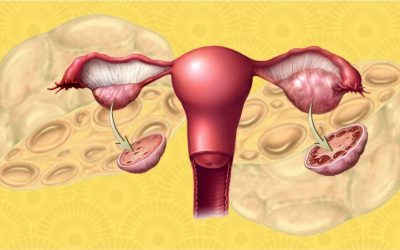Common Problems with Breast Feeding
If you are facing any breastfeeding problems, it’s important to consult your health advisor or any breastfeeding specialist immediately. So that problems like breast engorgement or sore nipples could be sorted out early.
Let’s discuss some problems that breastfeeding mothers face:
- Baby’s Learning Phase
Breastfeeding is a skill, which you as well as your baby, have to learn together. This may take a while to get used to it. If breastfeeding looks painful or the baby doesn’t look satisfied after feeding, it might not be getting it properly.
- Blocked Milk Duct
In case of continuous breast engorgement, it may lead to a blocked milk duct where you might feel a tender, small lump in the breast. Every day feeding from an affected breast might help. You can also position the baby with the chin directing it towards a lump to help it feed from that breast part. Mother can use breast pump to express breast milk and feed using feeding bottles with natural teats that mimics sucking pattern similar to breast.
- Breast Abscess
If you don’t treat mastitis (breast abscess) in time or if it doesn’t react to the treatment, it may result in a breast abscess that might require an operation for draining it. If you have abscess you are not advised to feed the baby directly to prevent infection. Pump or hand express breast milk, if it hurts too much to nurse, to feed the baby.
- Breastfeeding & Tongue Tie
In every 1 baby out of 10 babies, the skin strip attaches with the tongue to the floor of the mouth or frenulum is smaller than usual. It is identified as a tongue tie. Few babies having a tongue tie don’t look to be worried by it. It may stop the tongue to move freely, which can make this hard to breastfeed. If the baby finds it difficult to latch you can try using bottles with anti colic vent system and angled teats to make the baby comfortable. Express the breast milk using manual or electric breast pump and introduce in between whenever you feel the baby is fussy due to insufficient feed.
- Breast Engorgement
Breast engorgement happens when the breasts become very full from milk. The breasts might feel tight, hard, and painful. Breast engorgement may happen during the early days when you as well as your baby are adapting to breastfeeding. This may take some days for the milk supply to equal your baby’s requirements.
- Cracked or Sore Nipples
Usually, sore nipples come when your baby isn’t positioned well or attached to the breast. Neglecting it may result in discomfort or pain therefore, it’s very important to get assistance from your health visitor, midwife, or breastfeeding expert as quickly as possible. One can use a topical application that is creams to heal sore nipples. Nipple formers , nipple shields , disposable breast pumps are also available for short term use for women with sore nipples.
- Inadequate Breast Milk
Whenever you initially start breastfeeding, you might worry that the baby is not having enough milk. This can take some time before you feel assured that the baby is having what is required. Providing your baby with both breasts at every feed and interchanging which breast you offer will assist you in stimulating the milk supply. It will keep your baby close as well as hold them well. Galactogogues rich supplements are usually suggested by gynaecologist to boost breast milk supply.
- Mastitis
Mastitis or breast inflammation happens whenever a blocked milk duct isn’t relieved. This makes your breast feel painful and hot, as well as could make you unwell with flu-like symptoms. You should continue breastfeeding. Doing feeding with a tender breast might help. If you don’t feel well within 24 hours, consult your GP immediately. You can feed the baby by expressing breast milk out and by using soft teats/ nipples that gives natural sucking feel.
- Thrush and Breastfeeding
Thrush infections may happen whenever your nipples become damaged or cracked. It happens because of the candida fungus, which causes thrush to get into your breast or nipple. Consult a GP immediately if you suspect a thrush infection. Women with thrush is not advised to breastfeed the baby. Doctors advice to pump breast milk and store it in storage bags to feed the baby. Before pumping ensure hygiene. Breast milk can be stored for upto 4 hours in room temperature and upto 4 days in refrigerator.
- Too Much Milk in Breasts
At times, women produce too much breast milk as well as their babies unable to cope with it. The best option is to visit your health visitor, midwife, or breastfeeding expert to observe the feed and see if they can identify the reason. Breast pads are widely used by women to absorb the dripping milk to avoid wet feel.
Conclusion
Breastfeeding is a new journey for both you and your baby. Breast milk is the ideal source of nutrition for babies. Exclusive breastfeeding is advised for babies upto 6 months. As a mother one must find solutions to overcome the common problems associated with breastfeeding. You can get counseling from your gynaecologist too and new medicinal era has come up with lot of products to help new mother overcome the difficulties with ease. Always remember breastfeeding gives lot of benefit to your health as well as your baby’s health.











